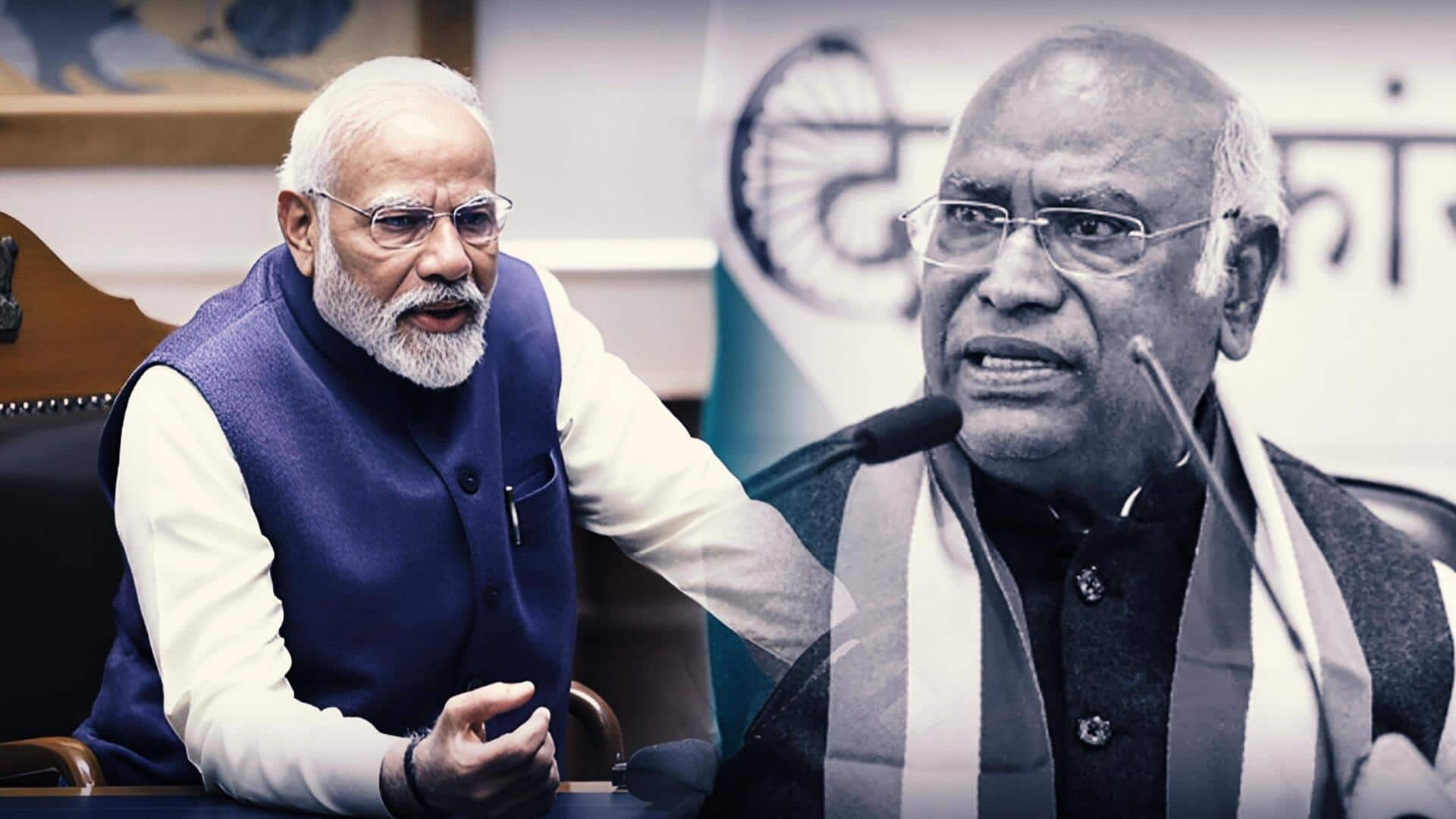
Explained: Katchatheevu Island sparks political debate ahead of 2024 elections
What's the story
As the Lok Sabha elections draw near, the uninhabited Katchatheevu island, located in the waters between India and Sri Lanka, has triggered a political slugfest.
Prime Minister Narendra Modi on Sunday accused the Congress party of undermining India's sovereignty by transferring control of this strategic island to Sri Lanka in the 1970s.
In response, Congress President Mallikarjun Kharge criticized PM Modi for only now addressing issues of territorial integrity and national security.
Context
Why does this story matter?
The controversy over Katchatheevu was recently reignited when PM Modi accused the Congress of recklessly surrendering the island, based on an RTI response from Tamil Nadu BJP leader K Annamalai.
In retaliation, Kharge pointed out that Modi's own Attorney General had stated in 2014 that reclaiming Katchatheevu could only be achieved through war.
The exchange has triggered a political slugfest between both the parites ahead of the crucial general elections.
Island profile
Historical, geographical overview of Katchatheevu Island
Katchatheevu is a small 285-acre island situated northeast of Rameswaram, approximately 33 km from India and about 62 km southwest of Jaffna, Sri Lanka's northernmost point.
Despite being uninhabited, the island houses St Anthony's church, a Catholic place of worship that attracts Christian pilgrims from both nations annually.
The island's history is complex, with control shifting between India and Sri Lanka over centuries.
Twitter Post
Read PM's statement that triggered a row
Eye opening and startling!
— Narendra Modi (@narendramodi) March 31, 2024
New facts reveal how Congress callously gave away #Katchatheevu.
This has angered every Indian and reaffirmed in people’s minds- we can’t ever trust Congress!
Weakening India’s unity, integrity and interests has been Congress’ way of working for…
Agreement dispute
Origin of the Katchatheevu controversy
The controversy is centered around an agreement under which the Indian government in 1974 transferred the island to Sri Lanka.
The agreement allowed Indian fishermen access to waters around Katchatheevu but did not clearly define fishing rights.
The island soon became a bone of contention as fishing rights were never ironed out and fishermen constantly complained of the Sri Lankan Navy arresting them on the charge of poaching
Their boats were also impounded for violating International Maritime Boundary Line (IMBL).
Debats over Katchatheevu
Claims and debates over the issue
Before this agreement, the topic was extensively debated, dating back to 1961 when Prime Minister Jawaharlal Nehru reportedly expressed readiness to waive India's claims to Katchatheevu, according to a Times of India report.
However, India's Attorney General MC Setalvad argued that India's claim was stronger than Sri Lanka's, as per the same TOI report.
Nevertheless, in 1974, seeking to resolve the issue definitively, then Prime Minister Indira Gandhi "ceded" the island to Sri Lanka under the Indo-Sri Lankan Maritime agreement.
Opposition reacts
Congress, DMK hit out at PM's remarks
Following PM Modi's revival of the issue, both the Congress and the Dravida Munnetra Kazagham (DMK), allies in the state, criticized his remarks.
Kharge labeled it as PM Modi's "election desperation," citing the 2015 land boundary agreement's example. He recalled Modi's past statement on the pact being "about a meeting of hearts."
Kharge highlighted the opinion of the Government's Attorney General, Mukul Rohtagi, who in 2014 informed the Supreme Court that reclaiming Katchatheevu would require going to war.
DMK's response
'PM's attention drawn to a 50-year-old issue'
The DMK also reacted, with spokesperson Manuraj S calling it "startling" that PM Modi's attention was drawn to an issue nearly half a century old.
He criticized the Bharatiya Janata Party's focus on opposition-blaming rather than highlighting their achievements after a decade in power, deeming it a "woeful and outdated political campaign issue."